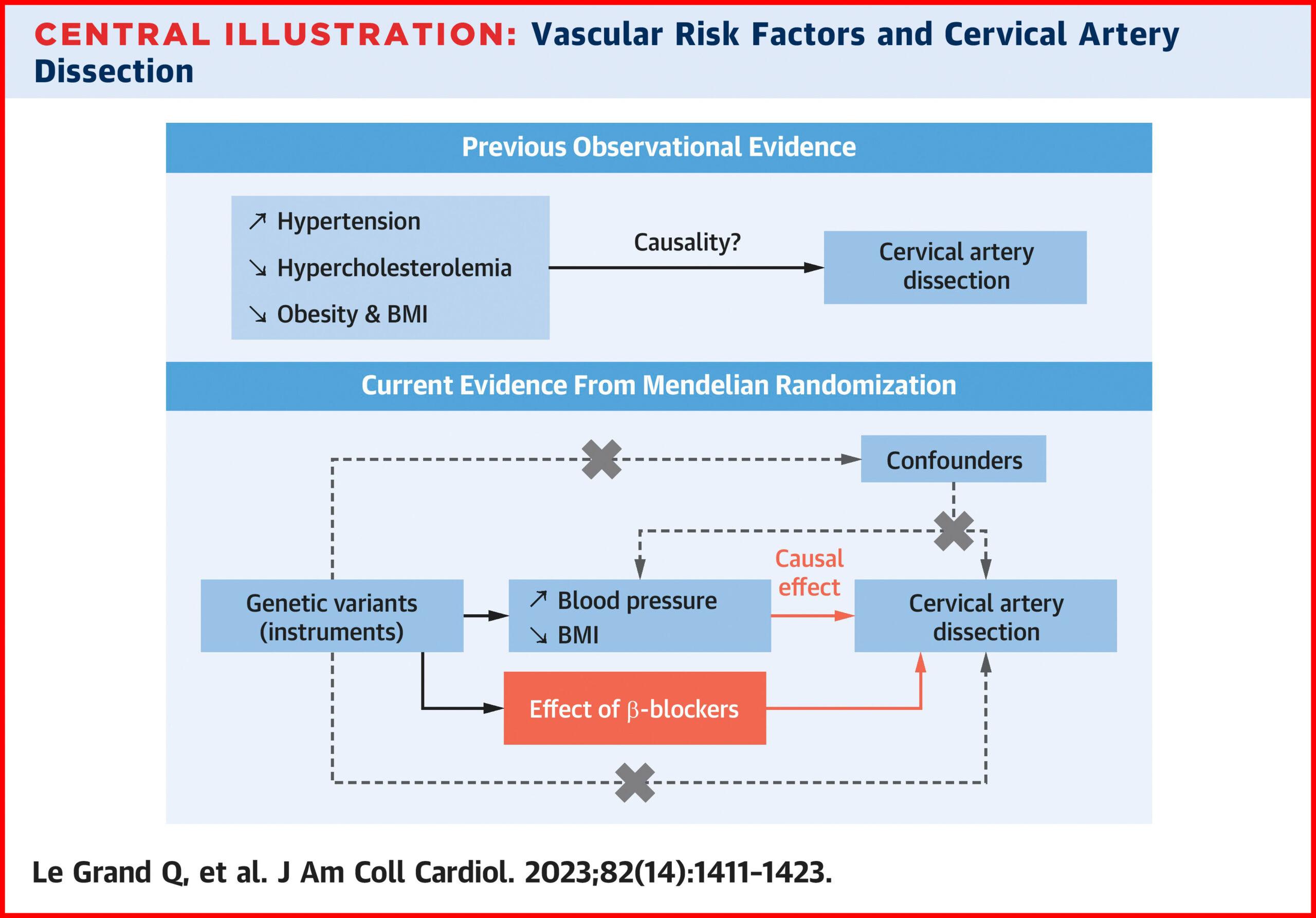A genomic study by ELEANOR team & CADISP consortium among the Top picks of the Journal of the American College of Cardiology
Retour
A genomic study by ELEANOR team & CADISP consortium
among the Top picks of the Journal of the American College of Cardiology
Cervical artery dissection is a major cause of ischemic stroke in young adults. It involves bleeding into the wall of the carotid or vertebral arteries, which “tears” the artery (hence the term dissection) longitudinally without rupturing the vessel.
This bleeding leads to the formation of a hematoma, which reduces the diameter of the artery and potentially leads to its blockage, causing an ischemic stroke
The publication of the results of a genomic study on cervical artery dissection, coordinated by researchers from the ELEANOR team and the CADISP consortium is among the Top picks of the Journal of the American College of Cardiology (JACC)
The association of vascular risk factors with cervical artery dissections (CeAD), a leading cause of ischemic stroke (IS) in the young, has long been controversial.
There are currently no recommendations on vascular risk factor assessment and management in CeAD patients.
Using Mendelian randomization approaches, the results of this study support a strong association of higher blood pressure with CeAD risk.
In addition, genetic proxies for β-blocker effects were associated with a lower risk of CeAD, but not non-CeAD IS.

Thus, these results may inform expert recommendations for blood pressure monitoring following CeAD and future trial design for secondary prevention of CeAD, especially evaluating blood pressure lowering treatment.
=> Access the publication on the Journal of the American College of Cardiology (JACC)
Contact
Pr. Stéphanie Debette
Université de Bordeaux, Inserm, Centre de recherche en santé des populations de Bordeaux, UMR 1219
Service de neurologie, CHU de Bordeaux
146, rue Léo Saignat, 33076 Bordeaux, France
Mail : stephanie.debette@u-bordeaux.fr



